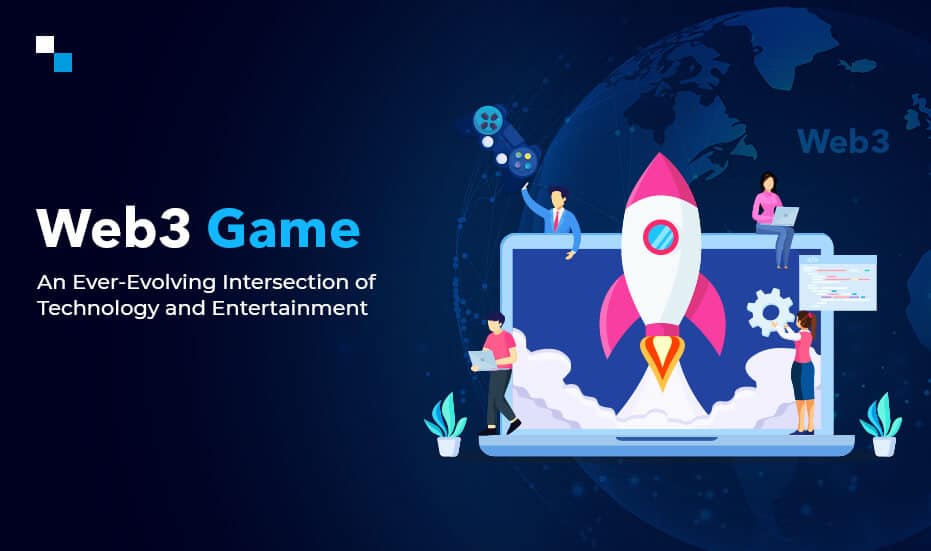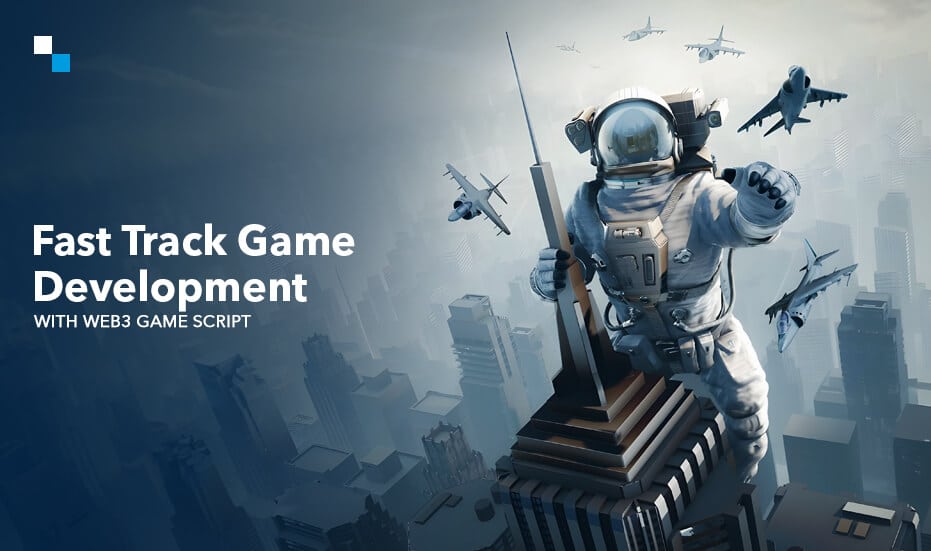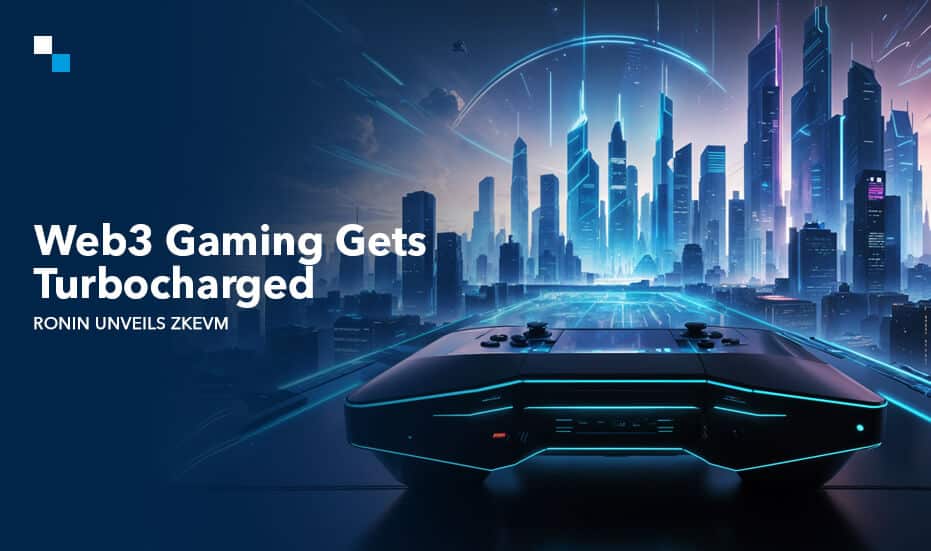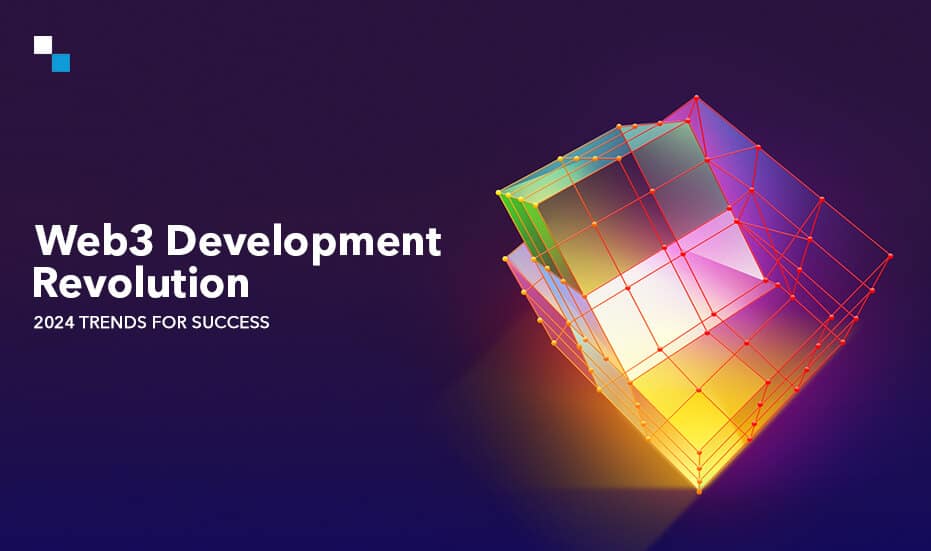
Web3 Crypto Wallet For Metaverse Engagement: Experience The Best Of Both Worlds!
October 17, 2023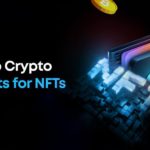
Top 20 NFT Crypto Wallets of 2024
October 17, 2023Table of Contents
Introduction
Web3 gaming has emerged as an exhilarating frontier, contending to revolutionize the world of gaming with transparency, fairness, player ownership, and many more groundbreaking attributes. GameFi, crypto gaming, and on-chain gaming are some of the synonymous terms coined after the advent of Web3 games, navigating the mass adoption of the concept.
Even after the colossal success of many Web3 or blockchain games, Web3 game development has been a work in progress for the gaming world. The transition from Web2 to Web3 has been challenging for gamers as well as businesses, which is why the penetration of Web3 games has been slower than expected. In this article, we will discuss the roadblocks to the adoption of Web3 games and the best practices to overcome them.

Understanding Web3 Games and Its Features
Web3 Game Development has brought forward a compelling trend where gaming isn’t about mere fun but is a financially rewarding activity as well. It offers gamers the opportunity to earn and own valuable tangible digital assets as they engage with the game’s ecosystem. The virtual accolades that just gave a sense of victory to the players in Web 2.0 now hold real-world value in Web3 games, thanks to innovative Web3 game development services.
Web3 or blockchain games refer to games that harness the power of distributed ledger technology to enable increased levels of decentralization, security, transparency, democratization, and user control. Web3 games, also referred to as GameFi, function at the crossroads of blockchain, gaming, and DeFi, ushering in a new era of games where players engage, earn, and trade in-game assets within an expansive decentralized ecosystem. By partnering with a reliable Web3 game development company, businesses can create an entirely novel world of exhilarating encounters for Web3 enthusiasts and casual and die-hard players.
Some Notable Features of Web3 Games That Set Them Apart:
- Complete Ownership and Control
- Digital Scarcity
- Player-driven Gaming
- Decentralization
- Interoperability Between Games and Platforms
- Provenance Tracking
- Transparency and Availability
- Decentralization
- Play-to-earn Mechanics
- In-game Economy
Related: Market Overview: Web3 Game Development
Opportunities in Web3 Game Development
Web3 game development presents an exciting world of opportunities for gamers as well as businesses and gaming studios. For gamers, it stages an extraordinary experience through interoperability, monetization models, immersive experiences, etc. However, substantial improvements in Web3 game development are required as current gameplay experiences are not optimized as per professional gamers’ expectations. Besides, they require an understanding of complicated registration, wallet integration processes, etc. This forges an opportunity for the upcoming businesses, as they can tap into the inefficiencies and gain gamers’ trust by partnering with top-rated Web3 Game Development Services providers.

He further added that, in his belief, we are in a quiet stage where future-oriented gaming studios are either under transformation or building new platforms that will bring the second wave of more sustainable web3 games.
The lucrative business model offers the following opportunities for businesses interested in Web3 game development:
- Increased profitability and user retention
- Optimized operations and enhanced traction through blockchain integration
- Broader customer base
- Cohesive and large-player communities
Top 10 Web3 Games in 2023
Many gaming businesses recognized the opportunities in Web3 game development a bit earlier and gained popularity in 2023. Some of the best-rated games that made a mark in the industry recently include:
- Alien Worlds
- Illuvium
- Splinterlands
- PlanetIX
- Inskra
- Upland
- Nine Chronicles
- Playmining
- The Sandbox
- Axieinfinity
Related: Understanding What It Takes To Succeed
Build A Thriving Web3 Game With Antier
Schedule Free DemoChallenges around Web3 Game Development and Adoption
As traditional gaming evolved into the blockchain and DeFi (decentralized finance) space, it gave rise to Web3 games, GameFi, and many similar terms. The newly carved-out transformative gaming niche is facing several challenges. Some of the challenges that are keeping Web3 games from disrupting the industry are as follows:
1. Security
- With greater financial benefits come higher stakes for users in the game. A security breach can result in substantial losses, which might leave all your web3 game development efforts in the dust. On-chain vulnerabilities include risks related to token minting problems, NFT rarity manipulation, token security, centralization risks in DAOs, and exchange inconsistencies. Whereas off-chain risks encompass third-party reliance issues, unauthorized interference with NFT metadata, etc.
- One of the examples of a significant vulnerability attack was when attackers exploited Axie Infinity’s Ronin Bridge, resulting in $600 million worth of loot.
2. Regulatory Issues
- The regulatory environment around Web3 game development is unclear and underdeveloped, resulting in uncertainty around how blockchain games will do in different jurisdictions. This poses a challenge for emerging web3 game projects as they can’t access the regulatory environment of unknown terrain. As more hacks, fraud, and data breaches surface, the regulations around intellectual property, data privacy and protection, KYC, and security requirements will be more stern.
- The United States Security and Exchange Commission’s concern about putting gaming tokens into the securities category can impede the growth of Web3 game development in the states.
3. Market Volatility and Liquidity:
- The price of on-chain assets is usually highly volatile, which becomes a potential barrier for investors and gamers. The speculative nature of cryptocurrencies doesn’t fascinate all traditional gamers, leading to lower adoption rates. Besides, unpredictable and abrupt price fluctuations and the newness of the tokens can wither away users’ trust.
- Another critical challenge in Web3 game development is the liquidity of tokens, specifically for less popular games. Users might not be interested in the tokens when they don’t have the freedom to liquidate and exit positions whenever desired.
4. Long-term Viability:
- Thousands of projects are vying for attention, while the audience for web3 games is still limited compared to traditional games. The influx of new projects employing clever marketing tactics confuses gamers, making it hard for them to differentiate promising projects from scams, rug pulls, and short-lived trends with inefficient game mechanics.
- This creates a competitive environment for the web3 game development projects.
5. Ambiguous Revenue Models and Inefficient Game Economies:
- The revenue models that appear vague might become deterrents for investors who are looking for a straightforward ROI prototype. Many projects struggle to form and declare a sustainable income stream beyond the initial token sale, leaving investors skeptical about their profitability.
- Poorly designed game economies that showcase short-term value extraction are often unsustainable, making the game capable of hype for short-term hype.
6. Technical Inadequacy:
- Many blockchains struggle to support high volumes of transactions, leading to abrupt collapses or a slow, expensive, and deficient customer experience. The existing blockchain infrastructure is incapable of supporting large-scale Web3 game development. Another notable technical constraint is the inability to achieve interoperability between various web3 game projects built on different blockchain networks. Weaving different blockchain games in a single ecosystem for a seamless operation therefore gets challenging for web3 game developers.
- Web3 game development services providers don’t have sufficient ready-to-deploy on-chain tools as the technology is still evolving. Therefore, the development costs and time are relatively higher than traditional game development.
7. Inferior Gaming Experience:
- As the gaming niche is still new, there are very few technology providers with sufficient experience in gaming and blockchain technology. Due to the lack of a seasoned Web3 game development company, most of the existing web3 games lag in graphics, gameplay, immersion, etc. The games lack engaging gameplay mechanics and often include repetitive tasks that disappoint gamers looking for actual fun.
- Some archaic web3 games even give more power to players in return for money. It poses a negative and unfair image of Web3 game development. Furthermore, on-chain games also have complicated interfaces, making them tricky for new entrants or audiences with no technical knowledge. Some games require players to buy NFTs to start, whose high costs might act as barriers to entry, turning players away before they can experience the game.
8. Technical Barriers for Players and Businesses:
- The integration of gaming and blockchain for web3 game development can create a learning curve, making gameplay challenging for investors with limited knowledge of how to set up a crypto wallet, buy digital assets, etc. Not knowing basic concepts about blockchain can dissuade potential users from becoming loyal players of web3 games, as they don’t understand much about how the ecosystems generate, distribute, and sustain value.
- Developing a web3 game is a demanding task requiring technical expertise, experience, a huge budget, and ample time. So, it is not easy to find a seasoned Web3 game development company.

Overcoming Web3 Game Development Challenges With Antier
- Ironclad Security:
Web3 game development services providers can guarantee the utmost security by carefully implementing smart contracts and implementing industry-grade security features. Collaborate with security experts at Antier to conduct exhaustive security audits and ensure that the best practices are being followed to keep away bots and scalpers and safeguard player and business interests. Apart from this, it is essential to strengthen server and infrastructure security and create emergency response plans. - Legal Counsel Expertise:
A reliable Web3 game development company with an experienced Web3 legal team can help businesses navigate the regulatory compliance of uncharted territory in different regions. For legal counsel and strategic planning, it is always recommended to count on a seasoned Web3 game development agency like Antier. Their legal teams stay up to date with legal and regulatory developments around cryptocurrency, NFTs, and gaming to follow the best practices for protecting intellectual property rights and implementing risk mitigation. - Increasing Adoption Rates with an Enhanced Gaming Experience:
The adoption of Web3 games is lower than that of mainstream gaming, but by working on the gaming experience, adoption can be increased multiplefold. Better web3 game development means building diversified and captivating gameplay, implementing sustainable tokenomics, and promoting low-entry requirements. A gaming business can also give customers the freedom to play without accessing the blockchain-earning aspects. This way, they can sign up for the earning part whenever they want. By partnering with an experienced web3 game development services provider, gaming studios can also build triple-A-rated web3 games. - Robust Web3 Game Development:
To keep market volatility and liquidity issues at bay, Web3 game platforms can establish secondary markets and connections with reputable liquidity providers and exchanges. Enhancing transparency and offering real-time updates to customers can ingrain their trust in your web3 gaming platform, as when they feel informed and connected, they are less likely to doubt it. - Establishing a long-term viable web3 game
Collaborate with a top-rated web3 game development service provider to create timeless value for your customers through your game. Wipe out their doubts about your gaming platform’s sustainability by designing clear roadmaps in your white papers. Clearly demonstrate how your business will generate profits and how customers will benefit from playing your game in the long run. - Addressing Technical And Performance Issues:
By leveraging open standards and protocols along with modular architectures, our web3 game development teams strive to achieve interoperability. Antier’s familiarity with blockchain and gaming enables them to deliver more than just monotonous games while achieving high levels of scalability and interoperability. Our Web3 game development teams work in coordination with research teams to find appropriate blockchains, layer 2 networks, consensus algorithms, and off-chain solutions to achieve high throughput and low latency. - Simplifying User Experience:
A Web3 game development company with sound experience in UI/UX development can produce simple-to-navigate UI. Besides a user-friendly interface, a web3 game can be made more market-ready by offering tutorials and fostering a knowledge-sharing community.
Final Thoughts
The Web3 game market is growing despite the crypto winters and bear markets. It definitely means that it has immense untapped potential beyond crypto and NFTs. As Web3 game development increases, there are chances that it will bring in a new wave of users to gaming, crypto, NFT, and the overall web3 industry.
GameFi or blockchain games add an economic layer to traditional games and make them more immersive through state-of-the-art technologies. As Web3 is decentralized, the concept also introduces democracy and complete ownership.
Blockchain games are still in their infancy, and there are several issues that web3 game development services providers would need to address to spur mainstream gamers to embrace the on-chain games. It is improbable that Web3 games will supersede traditional games as the experiences offered and target audiences are different. However, it will unlock new possibilities and revenue streams for the gaming industry.
